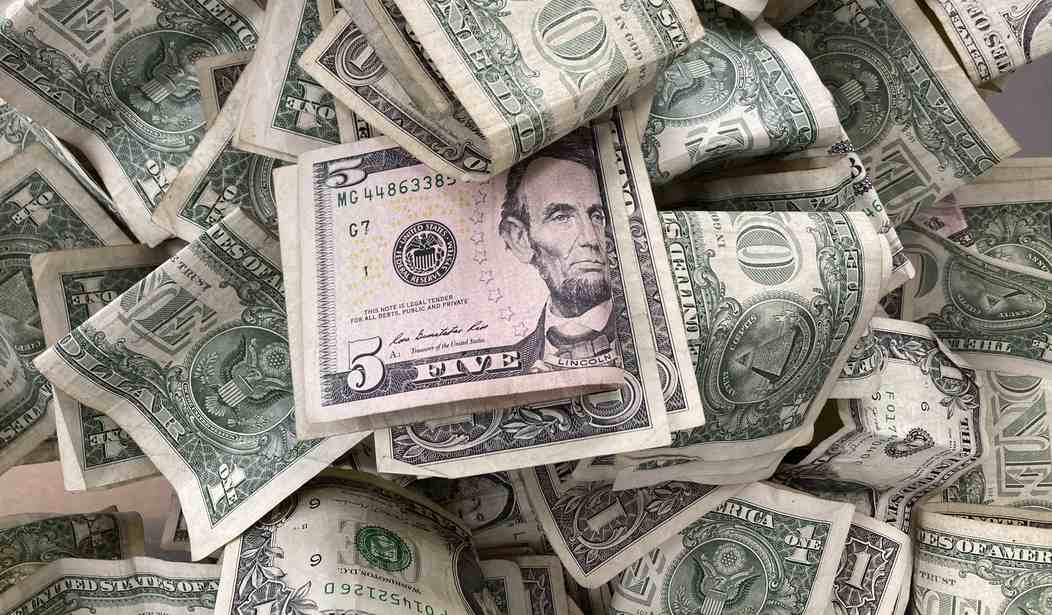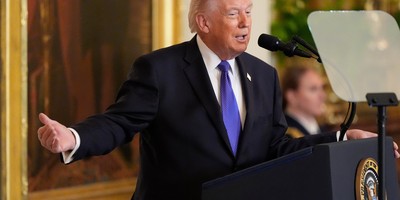This column is co-written by John Hantz.
In a September 1, 1935 article entitled Notes on the Next War published in Esquire magazine, American literary icon, Ernest Hemingway, wrote:
“The first panacea for a mismanaged nation is inflation of the currency; the second is war. Both bring a temporary prosperity; both bring a permanent ruin. But both are the refuge of political and economic opportunists.”
Considered a socialist politically, the above quote shows promise – leads us wishing Hemmingway’s writings explored economics in greater depth and/or he had lived long enough for us to have invited him to dinner.
Renowned economist Milton Friedman likely would have found agreement with Hemmingway’s quote. Friedman believed inflation occurs when government increases the money supply at a more rapid pace than the production of goods and services. Inflation is a government policy used to pay off debts by debasing a nation’s currency and financing government activity through the excess printing of money, often to avoid unpopular higher taxes.
The initial result of inflation is usually higher prices and the illusion an economy is growing, doing well, and consumers are demanding more of most of the goods and services said economy is producing. This is false. With inflation, governments finance economic activity through the creation of money while the resulting higher prices to a largely ignorant electorate are often blamed on greedy businesspeople rather than bad government policy, while government, business, and consumers are all worse off as a result.
Impact of Inflation
Over the past year, we have warned of a recession in 2022 or 2023 based on key signals from inverted yield curves, the rule of 4% and declining monthly used car prices; all followed by a slowing US economy.
Recommended
The following is a list of ten reasons why all Americans, especially our political leaders in Washington, should be concerned regarding the potential for a coming inflation-driven recession, exacerbated by the COVID-19 pandemic and war in Ukraine.
The US Consumer Inflation rate as of early May 2022 stands at 8.5% due to excessive government spending and expansionary Federal Reserve monetary policy: a) The US inflation rate was 1.4% when President Biden took office; b) his COVID Relief bill injected an additional $1.9 trillion into the economy in March 2021, contributing to a 2.6% inflation rate; c) His unbudgeted $1 trillion for infrastructure last November, helped push inflation to 6.8%.
President Biden entered office facing a record high Federal Reserve Balance Sheet of $7.4 trillion. As of early May 2022, the number is now $9 trillion with the Federal Reserve Bank pledging to buy even more government securities for at least another month.
The monthly inflation rate for March 2022 is 1.2% or looking forward on an annualized basis would be an inflation rate of 14.4% if the FED does not act quickly to bring inflation under control.
March producer or wholesale inflation on a year-to-year basis was 11.2%. Producer or wholesale prices generally signal what future consumer inflation will be like as producers try to stay as profitable as possible by attempting to pass higher costs on to consumers. The producer price index for March 2022 was 1.4% or would be 16.8% in a year if annualized.
The US National Debt has been out of control since the 1990s, incredibly it has increased 41.44% since 2019, and stands at $30.433 trillion today due to excessive government spending by both parties.
Total non-farm US payrolls stood at 152.5 million Americans employed in February 2020 a pre-pandemic record. Today, with a strong job market, and an estimated 11.55 million job openings yet to be filled, we still have 1.2 million fewer Americans employed in May 2022 than in February 2020. This is largely due to the continued restructuring of the economy from the pandemic era as well as inflation and declining real wages.
President Trump’s tax cuts and zeal for deregulating the US economy helped spur solid economic growth from 2017 through early 2020. President Biden’s re-regulation of the economy, especially in the area of energy regulations and his numerous threats to increase taxes on corporations and the wealthy, is in our opinion hampering economic growth.
China politics and the pandemic in Asia are still affecting the global supply chain and driving up overall consumer prices by as much as 3%. Russia’s invasion of Ukraine has negatively impacted the global supply of oil as well as corn and wheat from Ukraine. However, excessive US government spending and monetary policy remains the root cause of inflation, driving up prices, interest rates and US Treasury Bond Yields.
Dr. Kevin Hassett, former Trump chair of the council of economic advisors and current Hoover Institution scholar recently stated: “since 1950 there is a 95% chance an economy will go into recession within a year after having such a dramatic decline in Q1 GDP as we have experienced this year.”
At the end of April, we were producing 11.9 million barrels of oil a day vs the daily average of 13.2 million barrels under the Trump Administration. We must deregulate the US petroleum industry. The price for regular gasoline is currently $4.28/gallon and would come down substantially if we were producing 1.3 million additional barrels of oil daily.
Conclusion
Since our current inflationary spiral began in January of 2021, nominal wages are up 5.5%, while overall real wages are down 3%. In addition, investors have lost an estimated $20 trillion in wealth due to losses in stock portfolios and 401K’s. Reduced purchasing power, a negative wealth effect from investments and savings, and lower consumer confidence in the future is a troika of bad news which must be reversed.
About the Authors:
Dr. Timothy G. Nash is director of the McNair Center at Northwood University.
Mr. John Hantz is CEO of The Hantz Group in Southfield, Michigan.

























Join the conversation as a VIP Member